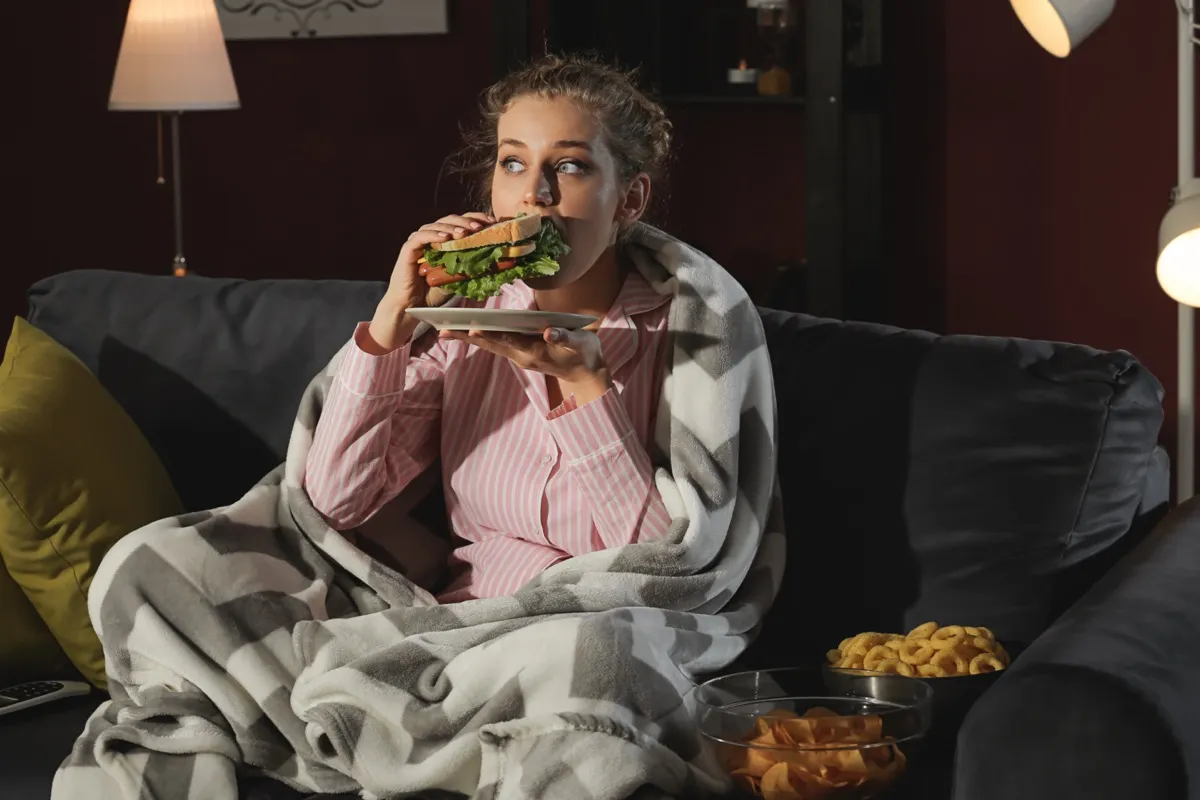- 16 August 2023
- 95
Sleep-Enhancing Diet: Avoid These Bedtime Bites for Restful Nights

This article is intended for individuals seeking to improve their sleep quality and overall health by making informed dietary choices before bedtime. Readers will benefit from understanding which foods to avoid, how these foods can impact sleep, and expert insights from Dr. Joel Fuhrman, a renowned advocate of nutrient-dense, plant-based nutrition.
The Connection Between Diet and Sleep:
The old saying, “You are what you eat,” holds true even when it comes to sleep. What we consume before bedtime can significantly impact the quality of our sleep. Research has shown that certain foods and beverages can disrupt sleep patterns, making it crucial to be mindful of our choices, especially in the hours leading up to bedtime.
Foods to Avoid Before Bed:
When it comes to bedtime snacks, not all options are created equal. Certain foods can interfere with the body’s natural sleep processes, leading to restlessness and even insomnia. High-sugar treats and heavily processed foods can cause spikes in blood sugar levels, leading to energy crashes and a disrupted sleep cycle. Caffeine and alcohol are notorious sleep disruptors, with their stimulating effects wreaking havoc on our ability to fall asleep and stay asleep.

Another category to steer clear of is spicy and acidic foods. These can lead to indigestion and heartburn, which are particularly troublesome when trying to settle down for a restful night. While it’s important to avoid heavy, greasy meals, going to bed hungry isn’t ideal either – a rumbling stomach can keep you awake.
Expert Insights from Dr. Joel Fuhrman:
Dr. Joel Fuhrman’s dedication to promoting health through nutrition makes his insights invaluable in the context of sleep-enhancing diets. His emphasis on nutrient-dense, plant-based eating aligns well with the goal of improving sleep quality. While Dr. Fuhrman hasn’t specifically focused on sleep, his research underscores the importance of consuming foods rich in vitamins, minerals, and antioxidants. These components contribute to overall well-being and could indirectly support better sleep.
Optimal Bedtime Snacking:
While it’s important to avoid certain foods before bedtime, not all snacks are off the table. In fact, there are bedtime bites that can promote relaxation and contribute to a peaceful night’s sleep. For instance, foods containing tryptophan, an amino acid precursor to serotonin and melatonin, can have a calming effect. Think about a small serving of warm milk or a banana.
Additionally, complex carbohydrates, like whole grains, can help increase the availability of tryptophan in the brain, further supporting the production of sleep-inducing neurotransmitters. Herbal teas, such as chamomile or valerian root, are also popular choices for their soothing properties.

